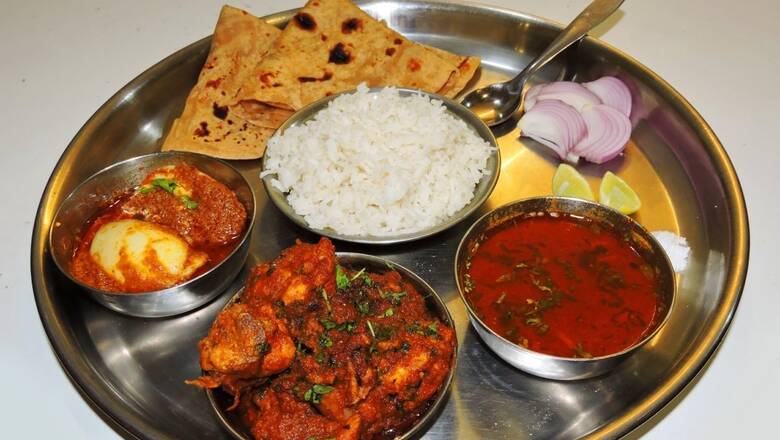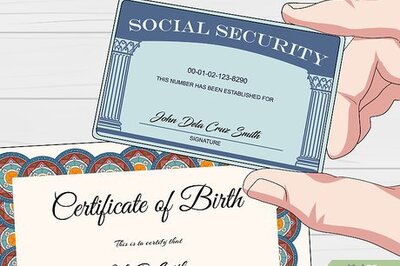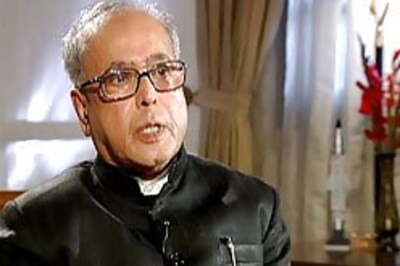
views
The cost of a representative home-cooked vegetarian thali has witnessed a 5 per cent on-year increase in January, while that of the non-veg thali declined 13 per cent, a report said on Wednesday.
According to Crisil Market Intelligence and Analytics (MI&A) Research ‘Rice Roti Rate’ estimates, the rise in prices of ingredients like pulses, rice, onion and tomato made home-cooked veg thali costlier in January, while decline in poultry rates helped in the fall in non-veg thali rates.
The cost of the veg thali increased due to a surge of 35 per cent and 20 per cent year-on-year in prices of onion and tomato, respectively, said the report. Prices of rice (accounting for 12 per cent of the veg thali cost) and pulses (9 per cent) also increased by 14 per cent and 21 per cent y-o-y, respectively, it added.
Meanwhile, the decline in the cost of the non-veg thali was due to a 26 per cent fall in broiler prices in January, compared to the same month last year, amid higher production, the report stated.
However, on a month-on-month basis, the cost of the veg and non-veg thalis fell 6 per cent and 8 per cent, respectively.
The ease in cost was due to a decrease of 26 per cent and 16 per cent month-on-month prices of onion and tomato, respectively, with higher domestic supply of onion amid export curbs and fresh tomato arrivals from the northern and eastern states, the report said. The cost of the non-veg thali declined faster due to an 8-10 per cent month-on-month dip in prices of broilers, which account for 50 per cent of the cost, it added.
India’s retail inflation in the current financial year has declined after touching a peak of 7.44 per cent in July 2023, it is still high and was 5.69 per cent in December 2023, though within the Reserve Bank’s comfort zone of 4-6 per cent.
RBI Governor Shaktikanta Das will announce the decision of the Monetary Policy Committee (MPC) on Thursday (February 8) morning.
The MPC is entrusted with the responsibility of deciding the policy repo rate to achieve the inflation target, keeping in mind the objective of growth.
In an off-cycle meeting in May 2022, the MPC raised the policy rate by 40 basis points and it was followed by rate hikes of varying sizes, in each of the five subsequent meetings till February 2023. The repo rate was raised by 250 basis points cumulatively between May 2022 and February 2023.
The MPC consists of three external members and three officials of the RBI.
(With PTI Inputs)


















Comments
0 comment